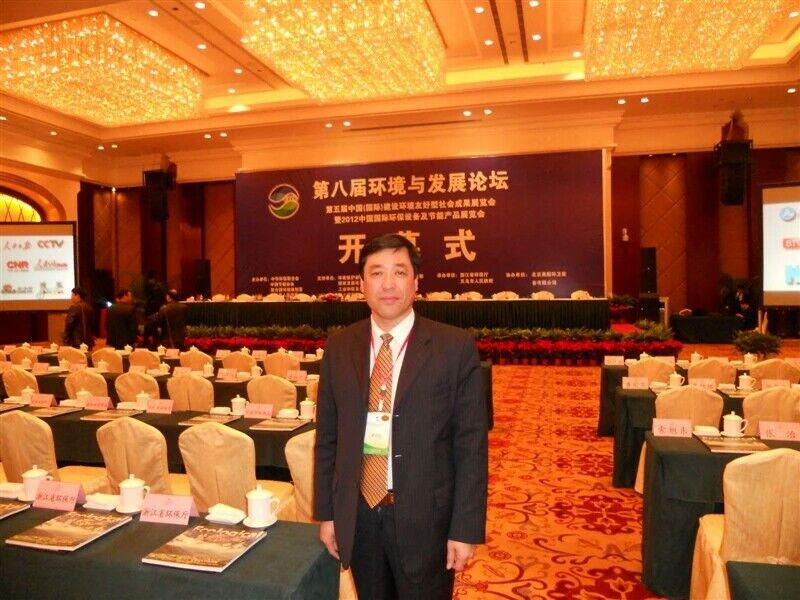 |
·ЁВЙУўХZ(yЁі) |
|
|
| ёөӮҘБјЈәОДуwЕc·ЁВЙ·ӯЧg |
|
іцМҺЈә·ЁВЙоҷҶ–(wЁЁn)ҫW(wЁЈng)ЎӨЙжНвm.jeanmcdaniel.com
•r(shЁӘ)йgЈә2012/3/19 15:41:35 |
ёөӮҘБјЈәОДуwЕc·ЁВЙ·ӯЧgЈЁ5Ј©
2Ј©ҫдЧУҪY(jiЁҰ)ҳӢ(gЁ°u)өДАнҪвЕc·ӯЧg
Skills of Translation
·ЁВЙУўХZ(yЁі)өДҫдЧУҪY(jiЁҰ)ҳӢ(gЁ°u)ТФйL(zhЁЈng)ҫдһйЦчЈ¬НщНщіц¬F(xiЁӨn)ҸДҫдМЧҸДҫдөД¬F(xiЁӨn)Пу�Ј¬Т»ӮҖ(gЁЁ)йL(zhЁЈng)ҫд°ьә¬БЛТ»ЯBӯh(huЁўn)өДИфёЙӮҖ(gЁЁ)ҸДҫд���Ј¬ЦРйgЯҖУРІеИлХZ(yЁі)ЎЈ·ӯЧgәГЯ@ҳУөДйL(zhЁЈng)ҫд���Ј¬ЦчТӘІЙУГЎ°ЗРёо·ЁЎұ��Ј¬јҙФЪФӯОДҫдЧУЦРөДЦчҸДҫдВ“(liЁўn)ҪУМҺ�ЎўЯBФ~МҺ�����ЎўкP(guЁЎn)ПөҙъФ~МҺЗР”а���ЎЈ·ӯЧg•r(shЁӘ)�Ј¬КЧПИТӘЦШАнҪвФӯОД��Ј¬ТӘДНРДЧx¶®йL(zhЁЈng)ҫд��Ј¬·ЦОцйL(zhЁЈng)ҫдЦРёчТвИәөДкP(guЁЎn)Пө�����Ј¬И»әу°ҙТвИәЈ¬Іў°ҙЖдЯүЭӢкP(guЁЎn)Пө����Ј¬ЧgіЙқhХZ(yЁі)·Цҫд��Ј¬К№ЧgИлХZ(yЁі)ҢУҙО·ЦГч�����Ј¬ТвЛјЯBШһ����Ј¬ХZ(yЁі)СФНЁнҳЈ¬ЯүЭӢРФҸҠ(qiЁўng)��ЎЈ
Аэ1Јә
ФӯОДЈә
Now the Condition of the above-written Guarantee is such that if the Contractor shall duly perform and observe all the terms provisions conditions and stipulations of the said Contract on the ContractorЎҜs part to be performed and observed in accordance with the true purport intent and meaning thereof or if on default by the Contractor the Guarantor shall satisfy and discharge the damages sustained by the Employer thereby up to the amount of the above-written Guarantee then this obligation shall be null and void but otherwise shall be and remain in full force and effect but no alteration in terms of the said Contractor or in the extent or nature of the Works to be executed, completed and defects in the Works remedied thereunder and no allowance of time by the Employer of the Engineer under the said Contract nor any forbearance or forgiveness in or in respect of any matter or thing concerning the said Contract of the part of the Employer or the said Engineer shall in any way release the Guarantor from any liability under the above-written Guarantee.
Notes:
1)Я@ҫдФ’УЙ170¶аӮҖ(gЁЁ)Ф~ҳӢ(gЁ°u)іЙ�����Ј¬ЦРйgЦ»УРБЛТ»¶әМ–(hЁӨo)�����Ј¬УЙif, or, but өИЯBФ~°СҺЧҢУТвЛјЯBіЙТ»ӮҖ(gЁЁ)Хыуw�����ЎЈһйБЛұгУЪ·ЦОцЎўкUКц��Ј¬¬F(xiЁӨn)ҢўФӯҫдЗР·ЦіЙҺЧІҝ·Ц�Ј¬әҶ(jiЁЈn)·QёчІҝ·ЦһйAЎўB�ЎўCЎўD��ЎЈ
2)ҫдЧУөДAІҝ·ЦЈәNow the Condition of the above-written Guarantee is such that, КЗҫдЧУөДЦчТӘІҝ·Ц���Ј¬ұИЭ^әҶ(jiЁЈn)ҶО����Ј¬іэabove-writtenј°such thatһй·ЁВЙУўХZ(yЁі)УГФ~Нв��Ј¬ЖдЛьІҝ·ЦЕcЖХНЁУўХZ(yЁі)ұнЯ_(dЁў)„eҹo(wЁІ)ғЙҳУ��ЎЈФЪУўХZ(yЁі)АпУГ¶Ё№ЪФ~the ТСУРПЮ¶ЁЧчУГ����Ј¬ПЮ¶ЁGuaranteeЈ¬ө«·ЁВЙХZ(yЁі)СФһйБЛёьГчҙ_ПЮ¶ЁGuarantee�����Ј¬УЦТФabove-written·ЦФ~¶МХZ(yЁі)ЧчҸҠ(qiЁўng)Х{(diЁӨo)ПЮ¶ЁЎЈSuchТІКЗЯM(jЁ¬n)Т»ІҪПЮ¶ЁthatТэЖрөДҳЛ(biЁЎo)ХZ(yЁі)ҸДҫд���ЎЈФЪ·ӯЧg•r(shЁӘ)���Ј¬‘Ә(yЁ©ng)°СЙПКцПЮ¶ЁөДХZ(yЁі)ҡвЧgіцҒн(lЁўi)��Ј¬ҝЙЧgіЙЈәЎ°ЙПКцұЈЧC•ш(shЁұ)Ўұ�Ј¬Ў°ТҺ(guЁ©)¶ЁИзПВЎұЎЈ
3)BІҝ·ЦјҙөЪТ»ӮҖ(gЁЁ)ifҸДҫдЈәif the Contractor shall duly perform and observe all the terms provisions conditions and stipulations of the said Contract on the ContractorЎҜs part to be performed and observed in accordance with the true purport intent and meaning thereof��Ј¬ҫдЦРshallКЗ·ЁВЙУўХZ(yЁі)УГФ~�Ј¬ФЪЯ@АпұнГчЦчХZ(yЁі)the Contractor‘Ә(yЁ©ng)ұMШҹ(zЁҰ)ИОЎЈҫдЦРУЦТФperform and observeғЙӮҖ(gЁЁ)ІўБР„У(dЁ°ng)Ф~��Ј¬ҢҰ(duЁ¬)ЦчХZ(yЁі)РРһйВҡШҹ(zЁҰ)ТҺ(guЁ©)¶ЁөД·ЗіЈЗеію�Ј¬ФЪ·ӯЧg•r(shЁӘ)Ј¬ТІТӘ°СЖдә¬БxЧgіцҒн(lЁўi)���Ј¬ҝЙЧgіЙЈәЎ°‘Ә(yЁ©ng)ЗРҢҚ(shЁӘ)ВДРРІўЧсКШЎұ��ЎЈҫдЧУөДәу°лІҝ·ЦТФof the said ContractҒн(lЁўi)ПЮЦЖterms provisions conditions and stipulationsәу�Ј¬УЦСa(bЁі)ТФon the ContractorЎҜs part to be performed and observed°СШҹ(zЁҰ)ИОПЮ¶ЁөҪәПН¬ЦРТҺ(guЁ©)¶ЁөДіР°ьИЛТ»·ҪЛщТӘВДРРәНЧсКШөДЛщУР—lҝоЎў—lјюј°ТҺ(guЁ©)¶Ё�Ј¬А^¶шУЦТФin accordance with the true purport intent and meaning thereofГчҙ_МбіціР°ьИЛВДРРЯ@Р©—lҝоЎў—lјюј°ТҺ(guЁ©)¶ЁөДёщ“ю(jЁҙ)�����ЎЈЯ@ҳУҫНТФИэӮҖ(gЁЁ)ҪйФ~¶МХZ(yЁі)әНТ»ӮҖ(gЁЁ)І»¶ЁКҪ¶МХZ(yЁі)°СЗ°әуғЙІҝ·ЦҮА(yЁўn)ГЬҪMҝ—ФЪТ»Жр����Ј¬°СіР°ьИЛҢҰ(duЁ¬)УЪәПН¬‘Ә(yЁ©ng)іР“ъ(dЁЎn)өДШҹ(zЁҰ)ИОЧчһйҙЛұЈЧC•ш(shЁұ)УРР§өДТ»ӮҖ(gЁЁ)—lјюЦvөГЗеЗеіюіюЈ¬·ӯЧg•r(shЁӘ)��Ј¬‘Ә(yЁ©ng)ЧўТвұЈЧCҢҰ(duЁ¬)ФӯОДОДуwөДЯm‘Ә(yЁ©ng)РФФӯ„t��Ј¬ЧgәГЙПКцИэӮҖ(gЁЁ)¶МХZ(yЁі)өДҮА(yЁўn)ГЬҪY(jiЁҰ)ҳӢ(gЁ°u)���Ј¬І»ұШҝБЗу¶Мҫд�ЎЈҫдЦРөДthereofһй·ЁВЙУўХZ(yЁі)УГФ~���Ј¬Твһйof the Contract���ЎЈ
4)CІҝ·ЦФӯОДКЗЈәor if on default by the Contractor the Guarantor shall satisfy and discharge the damages sustained by the Employer thereby up to the amount of the above-written Guarantee then this obligation shall be null and void but otherwise shall be and remain in full force and effectЈ¬Я@Іҝ·ЦТФor ifТэіцБнТ»·NҝЙДЬРФ����Ј¬Из№ыіР°ьИЛІ»ҲМ(zhЁӘ)РРЛщТҺ(guЁ©)¶ЁөД—lҝоИзәО�����Јҝ„tұЈЧCИЛ‘Ә(yЁ©ng)Ш“(fЁҙ)УРЩrғ”ҳI(yЁЁ)Цч“pК§өДШҹ(zЁҰ)ИО�ЎЈФӯОДФЪкUКцЯ@Т»ҢУТвЛј•r(shЁӘ)���Ј¬јИәҶ(jiЁЈn)ГчУЦҮА(yЁўn)ГЬ���ЎЈғHУГon defaultҫНКЎИҘБЛ—lјюҸДҫд��Ј¬ҪУЦшҢҰ(duЁ¬)УЪЩrғ”Ҫро~ТФu(pЁӘng)p to the amount of the above-written GuaranteeҪoУиГчҙ_ТҺ(guЁ©)¶Ё����Ј¬К№Я`јsХЯҹo(wЁІ)ҝЙөЦЩҮЈ¬ТІҹo(wЁІ)ҸДУ‘ғr(jiЁӨ)ЯҖғr(jiЁӨ)��Ј¬ТФұЈЧC•ш(shЁұ)ЙПөД”ө(shЁҙ)ДҝһйңК(zhЁіn)��ЎЈәуУЦҪУthenТэіцЩrғ”әу�Ј¬ұЈЧC•ш(shЁұ)әОИҘәОҸДЈҝТФshall be null and voidЯ@ҳУТ»ӮҖ(gЁЁ)·ЁВЙУГХZ(yЁі)Ғн(lЁўi)РыёжұЈЧC•ш(shЁұ)ҢҰ(duЁ¬)УЪШҹ(zЁҰ)ИОұЈЧCЧчУГТСҹo(wЁІ)Р§�����ЎЈИ»әуЈ¬УЦТФbut otherwiseјЩФO(shЁЁ)іцБнТ»·NПа·ҙөДЗйӣr����Ј¬ТІҫНКЗН¬Т»Ҷ–(wЁЁn)о}өДБнТ»ӮҖ(gЁЁ)·ҪГжЎЈҙЛІҝ·ЦХZ(yЁі)СФК®·Цҫ«ҹ’��Ј¬ТФotherwiseҙъМжБЛТ»ӮҖ(gЁЁ)НкХыөД—lјюҸДҫд����Ј¬ЦчҫдөДЦчХZ(yЁі)ТІКЎВФЈ¬ТФbe әНremainҒн(lЁўi)ҸҠ(qiЁўng)Х{(diЁӨo)ұЈЧC•ш(shЁұ)ҫЯУРөДИ«ІҝР§БҰ���ЎЈ·ӯЧgҙЛ¶О•r(shЁӘ)‘Ә(yЁ©ng)ЧўТвЧgОДХZ(yЁі)СФөДЯүЭӢкP(guЁЎn)Пө���Ј¬ТФНЁнҳөДқhХZ(yЁі)Ғн(lЁўi)ұнЯ_(dЁў)ФӯОДөДә¬БxЈ¬Я_(dЁў)өҪЎ°СЕЎұөДіМ¶И���Ј¬ҝЙЧgіЙЈә»тХЯИз№ыіР°ьИЛЯ`јs���Ј¬„tұЈЧCИЛ‘Ә(yЁ©ng)Щrғ”ҳI(yЁЁ)ЦчТтҙЛ¶шГЙКЬөД“pК§Ј¬ЦұЦБөҪЯ_(dЁў)ЙПКцұЈЧCҪро~���Ј¬ҢГ•r(shЁӘ)�Ј¬ұҫұЈЧC•ш(shЁұ)ЛщіР“ъ(dЁЎn)өДБx„Х(wЁҙ)јҙёжҪKЦ№Ј¬·с„tұЈЧC•ш(shЁұ)ИФұЈіЦНкИ«Р§БҰ����ЎЈ
5) DІҝ·ЦөДФӯОДКЗЈәbut no alteration in terms of the said Contractor or in the extent or nature of the Works to be executed, completed and defects in the Works remedied thereunder and no allowance of time by the Employer of the Engineer under the said Contract nor any forbearance or forgiveness in or in respect of any matter or thing concerning the said Contract of the part of the Employer or the said Engineer shall in any way release the Guarantor from any liability under the above-written Guarantee.
DІҝ·ЦЭ^йL(zhЁЈng)Ј¬ТФbutТэіцТ»ӮҖ(gЁЁ)ІўБРҫд�����ЎЈҫдЧУйL(zhЁЈng)ЦчТӘКЗУЙУЪҢҰ(duЁ¬)ИэӮҖ(gЁЁ)ІўБРЦчХZ(yЁі)өДРЮп—���ЎўПЮЦЖІҝ·ЦЭ^¶а��Ј¬Из№ыәҶ(jiЁЈn)¶шСФЦ®өДФ’Ј¬ФӯҫдҝЙТФҝsәҶ(jiЁЈn)һйЈә
no alteration and no allowance nor any forbearance or forgiveness shall release the Guarantor form any liability.
Я@ҳУ·ЦҪв��Ј¬әЬҝмҝҙЗеҫдЧУҪY(jiЁҰ)ҳӢ(gЁ°u)�����Ј¬ЕӘГч°ЧЯ@Т»Іҝ·ЦөДЦчТӘғИ(nЁЁi)ИЭ�Ј¬ө«ЧчһйәПН¬ОДјюЈ¬ұШнҡ°СЦчХZ(yЁі)өДИэӮҖ(gЁЁ)Іҝ·ЦөДКВн—(xiЁӨng)����Ўў·¶Үъ���ЎўіМ¶ИТҺ(guЁ©)¶ЁөГТ»Зе¶юіюЎЈЛщТФИэӮҖ(gЁЁ)ЦчХZ(yЁі)¶ј·Ц„eТФИфёЙӮҖ(gЁЁ)ҪйФ~¶МФu(pЁӘng)әНІ»¶ЁКҪ¶МХZ(yЁі)јУТФПЮ¶Ё���Ј¬ЗТУГnoөДГыФ~·с¶ЁРОКҪұИУГ„У(dЁ°ng)Ф~өД·с¶ЁКҪЫьҫЯУР·ЁВЙөДҷа(quЁўn)НюРФ����Ј¬Ц^ХZ(yЁі)Іҝ·ЦУЦТФЎ°in, any, wayЎұјУҸҠ(qiЁўng)БҰ¶И�����Ј¬ТФu(pЁӘng)nder the above-written GuaranteeПЮ¶ЁВҡұы·¶Үъ��ЎЈФӯОДЦРB�ЎўCЎўDИэІҝ·Ц°СAІҝ·ЦөДcondition—lјюЧчБЛҮА(yЁўn)ГЬөДкUКц���ЎЈұO(jiЁЎn)УЪТ»—lҝоОДРиТӘҫНДіӮҖ(gЁЁ)Ҷ–(wЁЁn)о}ЦvЗеію���Ј¬ТӘЕЕіэІ»ұШТӘөДЗйӣrЈ¬ПЮ¶ЁЛщРиөДЗйӣr��Ј¬Я@ҫНРиТӘУРФS¶аЖрПЮ¶ЁЧчУГөДҪйФ~¶МХZ(yЁі)Ј¬·ЦФ~¶МХZ(yЁі)�����ЎўЖрЖрЕЕіэ»тёҪјУЧчУГөДІеИлХZ(yЁі)��ЎўјЩФO(shЁЁ)ёч·NЗйӣr°l(fЁЎ)ЙъөДҸДҫд���ЎЈ
ҡwј{ЙПКц·ЦОц��Ј¬ҫдЧУҪY(jiЁҰ)ҳӢ(gЁ°u)ИзН¬·ҝЧУҪY(jiЁҰ)ҳӢ(gЁ°u)����Ј¬ЕӘІ»ЗеТ»ЧщҙуҳЗөДҪY(jiЁҰ)ҳӢ(gЁ°u)����Ј¬ҫН•ю(huЁ¬)ФЪҳЗАпЮD(zhuЁЈn)Ғн(lЁўi)ЮD(zhuЁЈn)ИҘіцІ»Ғн(lЁўi)Ј¬ЛщТФХЖОХ·ЁВЙОДјюөДҫдЧУҪY(jiЁҰ)ҳӢ(gЁ°u)���Ј¬ТӘАніцҫдЧУҪY(jiЁҰ)ҳӢ(gЁ°u)КЧПИТӘХТіцЦчҫдөДЦчХZ(yЁі)Ц^ХZ(yЁі)Іҝ·ЦЈ¬ПИИҘөфЕcЦ®ПакP(guЁЎn)өДёч·NПЮЦЖ¶МХZ(yЁі)»тҸДҫд���Ј¬ФЩХТіцІўБРҫд»тЦчҸДҫдЦ®йgөДЯBҪУФ~����Ј¬°СІўБРІҝ·Ц»тҸДҢЩІҝ·ЦЯM(jЁ¬n)РРЯm®”(dЁЎng)ЗРёоЈ¬ФЩҢҰ(duЁ¬)ГҝТ»ЗРёоІҝ·ЦЯM(jЁ¬n)РРЙПКцЯ^(guЁ°)іМөД·ЦҪв����Ј¬ҫНҝЙҝ|нҳёчІҝ·ЦЦ®йgөДкP(guЁЎn)ПөЎЈФЪЯ@ҳУ»щөA(chЁі)ЙПЯM(jЁ¬n)РРқhЧg���Ј¬ЧgИлХZ(yЁі)өДЩ|(zhЁ¬)БҝҫНДЬұЈЧC���ЎЈ
ЧgОДЈә
ЖқҢўВДРРЙПКц•ш(shЁұ)ГжұЈЧC•ш(shЁұ)өД—lјюТҺ(guЁ©)¶ЁИзПВЈәИз№ыіР°ьИЛ‘Ә(yЁ©ng)ЗРҢҚ(shЁӘ)ВДРРІўЧсКШЛщәһКрөДЙПКцәПН¬ЦРТҺ(guЁ©)¶ЁөДіР°ьИЛТ»·Ҫ°ҙәПН¬өДХжҢҚ(shЁӘ)ЦјТвЎўТвПтәНә¬БxЛщ‘Ә(yЁ©ng)ВДРРәНЧсКШөДЛщУР—lҝо����Ўў—lјюј°ТҺ(guЁ©)¶Ё»тХЯЈ¬Из№ыіР°ьИЛЯ`јs����Ј¬„tұЈЧCИЛ‘Ә(yЁ©ng)Щrғ”ҳI(yЁЁ)ЦчТтҙЛ¶шГЙКЬөД“pК§Ј¬ЦұЦБөҪЯ_(dЁў)ЙПКцұЈЧCҪро~���Ј¬ҢГ•r(shЁӘ)�����Ј¬ұҫұЈЧC•ш(shЁұ)ЛщіР“ъ(dЁЎn)өДБx„Х(wЁҙ)јҙёжҪKЦ№�Ј¬·с„tұЈЧC•ш(shЁұ)ИФұЈіЦНкИ«Р§БҰЈ¬ө«ЛщәһәПН¬—lҝоөДёДЧғ»т?qЁұ)Ұ№ӨіМөДК©№Ө�ЎўНкіЙј°ёщ“?jЁҙ)әПН¬РЮСa(bЁі)ЖдИұПЭөДРФЩ|(zhЁ¬)әН·¶ҮъөДИОәОЧғёьЈ¬ТФј°ҳI(yЁЁ)Цч»т№ӨіМҺҹёщ“ю(jЁҙ)ЙПКцәПН¬ҪoУиөД•r(shЁӘ)йgҢ’ПЮ��Ј¬»тЙПКц№ӨіМҺҹ·ҪГжҢҰ(duЁ¬)ЙПКцәПН¬УРкP(guЁЎn)КВТЛЛщЧцөДИОәОИЭИМ»т?qЁұ)’ЛЎ���Ј¬ҫщІ»ДЬҪвіэұЈЧCИЛЛщіР“ъ(dЁЎn)өДЙПКцұЈЧC•ш(shЁұ)ТҺ(guЁ©)¶ЁөДБx„Х(wЁҙ)�����ЎЈ
Аэ2Јә
ФӯОДЈә
The seats of the Senators of the first class shall be vacated at the expiration of the second year, of the second class at the expiration of the fourth year, and of the third class at the expiration of the sixth year, so that one-third may be chosen every second year; and if vacancies happen by resignation, or otherwise, during the recess of the Legislature of any State, the Executive thereof may make temporary appointments until the next meeting of the Legislature, which shall then fill such vacancies.
Notes:
1Ј©ҙЛҫдУРЦчҫд��ЎўУР·Цҫд�����ЎўУЦУРІўБР����Ј¬ФЪёч·ЦҫдЦРУРҸДҫд���Ј¬ІеИлХZ(yЁі)�Ј¬КЎВФҫдРНөИ�����Ј¬ЛЖәхәЬлy·ӯ���Ј¬ө«ҸДҝӮуwҒн(lЁўi)ҝҙЦ»КЗТ»ҫдІўБРҫд�Ј¬°ҙЖдЯүЭӢкP(guЁЎn)ПөЦрТ»Чgіц�����Ј¬ІўІ»лy��ЎЈ
2Ј©ФӯОДЎ°The seats of the Senators of the first class shall be vacated at the expiration of the second year, of the second class at the expiration of the fourth year, and of the third class at the expiration of the sixth year, so that one-third may be chosen every second year;ЎұһйФ“ҫдөЪТ»Іҝ·Ц�ЎЈЖдЦРЎ°of the second class at the expiration of the fourth year, and of the third class at the expiration of the sixth year,ЎұһйКЎВФІҝ·ЦЈ¬·Ц„eКЎВФБЛЎ°The seats of the SenatorsЎұәНЎ°shall be vacatedЎұ���Ј¬һйК№·ЁВЙ—lОДұнКцЗеію��Ј¬ФЪЦРЧgУў•r(shЁӘ)��Ј¬‘Ә(yЁ©ng)°СФӯХZ(yЁі)КЎВФІҝ·ЦЧgіц����Ј¬ТтҙЛ‘Ә(yЁ©ng)ЧgіЙЈәЎ°өЪ¶юјү(jЁӘ)…ўЧhҶT‘Ә(yЁ©ng)ФЪЛыӮғөЪЛДДкИОЖЪқM•r(shЁӘ)ҢўЖдПҜО»ҝХіцЈ¬өЪИэјү(jЁӘ)…ўЧhҶT‘Ә(yЁ©ng)ФЪЛыӮғөЪБщДкИОЖЪқM•r(shЁӘ)ҢўЖдПҜО»ҝХіцЎұ�ЎЈҫдЦРөДЎ°so that one-third may be chosen every second year;ЎұКЗУЙso thatТэҢ§(dЁЈo)өДұнКҫҪY(jiЁҰ)№ыөД оХZ(yЁі)ҸДҫдЈ¬‘Ә(yЁ©ng)ЧgіЙЈәЎ°Я@ҳУГҝёфғЙДк‘Ә(yЁ©ng)ЯxЕeИэ·ЦЦ®Т»өД…ўЧhҶTЎұ���Ј¬ mayЕcshallТ»ҳУКЗ·ЁВЙУўХZ(yЁі)УГФ~���Ј¬ТІұнКҫЎ°‘Ә(yЁ©ng)Ф“ЎұЎўЎ°ҝЙТФЎұ���Ј¬ө«БҰ¶ИұИshallИх�ЎЈ
3Ј©ФӯОДЎ°and if vacancies happen by resignation, or otherwise, during the recess of the Legislature of any State, the Executive thereof may make temporary appointments until the next meeting of the Legislature, which shall then fill such vacancies.Ўұ һйФ“ҫдөЪ¶юІҝ·Ц����Ј¬КЗТ»ҫдЦчҸДҫдЈ¬УРifТэҢ§(dЁЈo)өД—lјюҸДҫд�Ј¬ЦчҫдЦРЯҖУРТ»ҫдУЙwhichТэҢ§(dЁЈo)өД¶ЁХZ(yЁі)ҸДҫдЈ¬°ҙХХйL(zhЁЈng)ҫдЎ°ЗРёо·ЁЎұөД·ӯЧg·Ҫ·Ё�����Ј¬°СЦчҸДҫд·ЦіЙИэӮҖ(gЁЁ)·ЦҫдЧgіц�����Ј¬ҝЙЧgіЙЈәЎ°Из№ыТтЮoВҡ»тЖдЛьФӯТт°l(fЁЎ)Йъ…ўЧhҶTПҜО»ҝХИұЈ¬УЦ•r(shЁӘ)МҺЦЭБў·ЁҷC(jЁ©)ҳӢ(gЁ°u)РЭ•ю(huЁ¬)ЖЪйg��Ј¬ЦЭБў·ЁҷC(jЁ©)ҳӢ(gЁ°u)ҲМ(zhЁӘ)РР№ЩҝЙЕR•r(shЁӘ)ЦёИОПҜО»���Ј¬ЖдИОЖЪЦБЦЭБў·ЁҷC(jЁ©)ҳӢ(gЁ°u)ХЩй_(kЁЎi)ПВТ»ҙО•ю(huЁ¬)ЧhЈ¬ҢГ•r(shЁӘ)ЦЭБў·ЁҷC(jЁ©)ҳӢ(gЁ°u)‘Ә(yЁ©ng)ХэКҪҸӣСa(bЁі)ЙПКцҝХИұ����ЎЈЎұ��Ў����ЈЎ°the Executive thereofЎұТвһйЎ°the Executive of the LegislatureЎұЦ®ТвЎЈOtherwiseКЗapart from that Ц®Тв���Ј¬ТтҙЛЧgіЙЈәЎ°УЦЎӯ..Ўұ.
ЧgОДЈә
өЪТ»јү(jЁӘ)…ўЧhҶT‘Ә(yЁ©ng)ФЪЛыӮғөЪ¶юДкИОЖЪқM•r(shЁӘ)ҢўЖдПҜО»ҝХіц�����Ј¬өЪ¶юјү(jЁӘ)…ўЧhҶT‘Ә(yЁ©ng)ФЪЛыӮғөЪЛДДкИОЖЪқM•r(shЁӘ)ҢўЖдПҜО»ҝХіц���Ј¬өЪИэјү(jЁӘ)…ўЧhҶT‘Ә(yЁ©ng)ФЪЛыӮғөЪБщДкИОЖЪқM•r(shЁӘ)ҢўЖдПҜО»ҝХіц�Ј¬Я@ҳУГҝёфғЙДк‘Ә(yЁ©ng)ЯxЕeИэ·ЦЦ®Т»өД…ўЧhҶT���ЎЈИз№ыТтЮoВҡ»тЖдЛьФӯТт°l(fЁЎ)Йъ…ўЧhҶTПҜО»ҝХИұ����Ј¬УЦ•r(shЁӘ)МҺЦЭБў·ЁҷC(jЁ©)ҳӢ(gЁ°u)РЭ•ю(huЁ¬)ЖЪйg��Ј¬ЦЭБў·ЁҷC(jЁ©)ҳӢ(gЁ°u)ҲМ(zhЁӘ)РР№ЩҝЙЕR•r(shЁӘ)ЦёИОПҜО»�Ј¬ЖдИОЖЪЦБЦЭБў·ЁҷC(jЁ©)ҳӢ(gЁ°u)ХЩй_(kЁЎi)ПВТ»ҙО•ю(huЁ¬)ЧhЈ¬ҢГ•r(shЁӘ)ЦЭБў·ЁҷC(jЁ©)ҳӢ(gЁ°u)‘Ә(yЁ©ng)ХэКҪҸӣСa(bЁі)ЙПКцҝХИұ����ЎЈ
Аэ3Јә
ФӯОДЈә
In case of the removal of the President from office, or of his death, resignation, or inability to discharge the powers and duties of the said office, the same shall devolve on the Vice-President, and the Congress may by law provide for the case of removal, death, resignation, or inability, both of the President and Vice-President, declaring what officer shall then act as President, and such officer shall act accordingly until the disability be removed or a President shall be elected.
Notes:
1Ј©ҙЛҫдҸДҝӮуwҒн(lЁўi)ҝҙКЗТ»ҫдІўБРҫдЈ¬ФЪёч·ЦҫдЦРУРЦчҸДҫдј°ҸДҫдЦРөДІўБРҫд�����ЎЈ°ҙХХйL(zhЁЈng)ҫдЎ°ЗРёо·ЁЎұөД·ӯЧg·Ҫ·Ё�����Ј¬°ҙёч·ЦҫдҸДҫдөДЯүЭӢкP(guЁЎn)ПөЦрТ»Чgіц����Ј¬ІўІ»лyЧg�����ЎЈ
2Ј©ФӯҫдIn case of the removal of the President from office, or of his death, resignation, or inability to discharge the powers and duties of the said office, the same shall devolve on the Vice-President,һйұҫҫдөДөЪТ»Іҝ·Ц��ЎЈҫдЦРЎ°in case of ЎұЕcЎ°in case thatЎұһй·ЁВЙУўХZ(yЁі)іЈУГөДФ~ҪMЈ¬ТвһйЎ°Из№ыЎұ���Ј¬ Ў°in case of ЎұУГУЪ¶МХZ(yЁі)�Ј¬Ў°in case thatЎұУГҸДҫд����ЎЈАэИзЈәЎ°In case that the Supplier fails to deal with such claim or conduct such proceedings, the Owner may do so at the cost and risk of the Supplier in accordance with the above-mentioned terms and provisions of indemnify.ЎұЈЁИ繩‘Ә(yЁ©ng)ИЛІ»ДЬМҺАнЛчЩr»тФVФAЈ¬ҳI(yЁЁ)ЦчҝЙТФЧФРРМҺАн�Ј¬ёщ“ю(jЁҙ)ЙПКцЩrғ”?shЁҙ)ДТ?guЁ©)¶Ё‘Ә(yЁ©ng)УЙ№©‘Ә(yЁ©ng)ИЛіР“ъ(dЁЎn)ЩM(fЁЁi)УГәНпL(fЁҘng)лU(xiЁЈn)ЎЈЈ©���ЎЈҫдЦРthe sameФЪ·ЁВЙУўХZ(yЁі)ЦРіЈіЈУГЧчҙъФ~��Ј¬КЗЦёЙПГжМбј°өДКВ�����Ј¬ұЬГвЦШҸН(fЁҙ)�����Ј¬Я@АпКЗЦёЈәthe powers and duties of the said office���Ј¬ФЪУўЧgЦР•r(shЁӘ)�Ј¬һйК№·ЁВЙ—lОДЛщұнЯ_(dЁў)өДТвЛјГчҙ_ҹo(wЁІ)Х`�Ј¬‘Ә(yЁ©ng)°Сthe sameЛщҙъөДә¬БxЧgіцЈ¬јҙЈәЎ°ҝӮҪy(tЁҜng)өДҷа(quЁўn)БҰЕcВҡШҹ(zЁҰ)Ўұ�����ЎЈ ҫдЦРdevolve onКЗ„У(dЁ°ng)Ф~�����Ј¬ТвһйЈЁof work, dutiesЈ©be transferred or passed to sb �����Ј¬һйЧgИлОДРРОДөДРиТӘ��Ј¬ФЪУўЧgЦР•r(shЁӘ)Ј¬ҝЙТФЯM(jЁ¬n)РРФ~БxЮD(zhuЁЈn)“Q�Ј¬°СФӯХZ(yЁі)өД„У(dЁ°ng)Ф~ЮD(zhuЁЈn)ЧgіЙЧgИлХZ(yЁі)өДГыФ~ЎЈҙЛҫдҝЙЧgіЙЈәЎ°Из№ыҝӮҪy(tЁҜng)ГвВҡ�����ЎўЛАНц���ЎўЮoВҡ»тҹo(wЁІ)ДЬВДРРҝӮҪy(tЁҜng)өДҷа(quЁўn)БҰЕcВҡШҹ(zЁҰ)����Ј¬‘Ә(yЁ©ng)УЙёұҝӮҪy(tЁҜng)ҙъАнРРК№ҝӮҪy(tЁҜng)өДҷа(quЁўn)БҰЕcВҡШҹ(zЁҰ)�����Ў����ЈЎұ�����ЎЈ
3Ј©ФӯҫдЦРand the Congress may by law provide for the case of removal, death, resignation, or inability, both of the President and Vice-President, declaring what officer shall then act as President, and such officer shall act accordingly until the disability be removed or a President shall be elected.һйҫдЧУөДөЪ¶юІҝ·Ц��ЎЈФ“Іҝ°ьә¬ғЙҢУТвЛј��Ј¬өЪТ»ҢУЈәthe Congress may by law provide for the case of removal, death, resignation, or inability, both of the President and Vice-President, declaring what officer shall then act as President,ҫдЦРprovide forһйкP(guЁЎn)жIФ~Ј¬Твһйestablish the legal basis or authority for sth to be done later���Ј¬јҙЎ°ЧчіцҫЯуwТҺ(guЁ©)¶Ё���Ј¬Мṩ·ЁВЙТА“ю(jЁҙ)ЎұЦ®ТвЎЈЯ@Т»ҢУЦРЯҖУРТ»ӮҖ(gЁЁ)·ЦФ~¶МХZ(yЁі)�Ј¬ІўБРҒн(lЁўi)РЮп—ЦчХZ(yЁі)the CongressЎЈ
өЪ¶юҢУЈәand such officer shall act accordingly until the disability be removed or a President shall be elected.һйҸН(fЁҙ)әПҫд��ЎЈҫдЦРthe disabilityТ»Ф~ФЪУўЧgЦР•r(shЁӘ)����Ј¬‘Ә(yЁ©ng)ҢўЖдЙоҢУә¬БxЧgіцЈ¬Ф“Ф~КЗЦёЎ°ЙПКцМбј°өДГвВҡ�ЎўЛАНцЎўЮoВҡ»тҹo(wЁІ)ДЬВДРРЗйӣrЎұ���ЎЈҫдЦРa PresidentТ»Ф~���Ј¬ёщ“ю(jЁҙ)ЙППВОДЈ¬‘Ә(yЁ©ng)ЧgіЙЎ°РВҝӮҪy(tЁҜng)Ўұ�����ЎЈТтҙЛЈ¬ҫдЧУөДөЪ¶юІҝ·ЦҝЙЧgіЙЈәЎ°Үш(guЁ®)•ю(huЁ¬)ҝЙТА·ЁҢҰ(duЁ¬)ҝӮҪy(tЁҜng)әНёұҝӮҪy(tЁҜng)өДГвВҡ�����ЎўЛАНц���ЎўЮoВҡ»тҹo(wЁІ)·ЁВДРРөДЗйӣrЧчіцҫЯуwТҺ(guЁ©)¶ЁЈЁМṩ·ЁВЙТА“ю(jЁҙ)Ј©��Ј¬ІўРыІјҢГ•r(shЁӘ)УЙДДӮҖ(gЁЁ)№ЩҶTҒн(lЁўi)ҙъАнРРК№ҝӮҪy(tЁҜng)өДҷа(quЁўn)БҰЕcВҡШҹ(zЁҰ)��Ј¬ФЪЙПКцҹo(wЁІ)ДЬВДРРЗйӣrҪY(jiЁҰ)КшЗ°»тРВҝӮҪy(tЁҜng)ЯxЕe®a(chЁЈn)ЙъЗ°����Ј¬Ф“№ЩҶT‘Ә(yЁ©ng)Па‘Ә(yЁ©ng)өШҙъАнРРК№ҷа(quЁўn)БҰЕcВҡШҹ(zЁҰ)��Ў����ЈЎұ
ЧgОДЈә
Из№ыҝӮҪy(tЁҜng)ГвВҡ����ЎўЛАНцЎўЮoВҡ»тҹo(wЁІ)ДЬВДРРҝӮҪy(tЁҜng)өДҷа(quЁўn)БҰЕcВҡШҹ(zЁҰ)Ј¬‘Ә(yЁ©ng)УЙёұҝӮҪy(tЁҜng)ҙъАнРРК№ҝӮҪy(tЁҜng)өДҷа(quЁўn)БҰЕcВҡШҹ(zЁҰ)��ЎЈҮш(guЁ®)•ю(huЁ¬)ҝЙТА·ЁҢҰ(duЁ¬)ҝӮҪy(tЁҜng)әНёұҝӮҪy(tЁҜng)өДГвВҡ��ЎўЛАНц��ЎўЮoВҡ»тҹo(wЁІ)·ЁВДРРөДЗйӣrЧчіцҫЯуwТҺ(guЁ©)¶ЁЈЁМṩ·ЁВЙТА“ю(jЁҙ)Ј©���Ј¬ІўРыІјҢГ•r(shЁӘ)УЙДДӮҖ(gЁЁ)№ЩҶTҒн(lЁўi)ҙъАнРРК№ҝӮҪy(tЁҜng)өДҷа(quЁўn)БҰЕcВҡШҹ(zЁҰ)����Ј¬ФЪЙПКцҹo(wЁІ)ДЬВДРРЗйӣrҪY(jiЁҰ)КшЗ°»тРВҝӮҪy(tЁҜng)ЯxЕe®a(chЁЈn)ЙъЗ°���Ј¬Ф“№ЩҶT‘Ә(yЁ©ng)Па‘Ә(yЁ©ng)өШҙъАнРРК№ҷа(quЁўn)БҰЕcВҡШҹ(zЁҰ)�����ЎЈ |
(В•ГчЈәұҫХҫЛщК№УГҲDЖ¬ј°ОДХВИзҹo(wЁІ)ЧўГчұҫХҫФӯ„“(chuЁӨng)ҫщһйҫW(wЁЈng)ЙПЮD(zhuЁЈn)Эd¶шҒн(lЁўi)���Ј¬ұҫХҫҝҜЭdғИ(nЁЁi)ИЭТФ№ІПнәНСРҫҝһйДҝөДЈ¬ИзҢҰ(duЁ¬)ҝҜЭdғИ(nЁЁi)ИЭУР®җЧh���Ј¬ХҲ(qЁ«ng)В“(liЁўn)ПөұҫХҫХҫйL(zhЁЈng)���ЎЈұҫХҫОДХВҳЛ(biЁЎo)УРФӯ„“(chuЁӨng)ОДХВЧЦҳУ»тХЯКрГыұҫХҫВЙҺҹРХГыХЯ���Ј¬ЮD(zhuЁЈn)Эd•r(shЁӘ)ХҲ(qЁ«ng)„Х(wЁҙ)ұШЧўГчіцМҺәНЧчХЯЈ¬·с„tҢўЧ·ҫҝЖд·ЁВЙШҹ(zЁҰ)ИО�ЎЈ) |
ЙПТ»ЖӘЈәper curiamЎӘЎӘТА·ЁФәЎўУЙ·ЁФәЛщ¶Ё
ПВТ»ЖӘЈәHow to Brief a Case
|
 |
| ФЪҫҖЧЙФғ |
|
| В“(liЁўn)ПөОТӮғ |
лҠФ’Јә13930139603 13651281807
QQМ–(hЁӨo)Јә373036737
а]ПдЈә373036737@qq.com |
|
|
|
|










